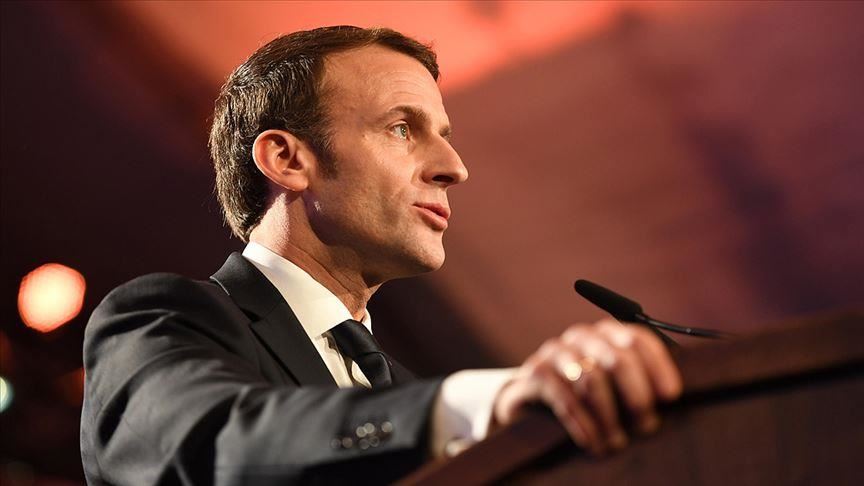Macron called 'president of the rich' in new study
Paper by OFCE emphasizes fiscal policy by Elysee that favors those at top of economic spectrum

PARIS
A study out Wednesday from the French Observatory of Economic Conditions (OFCE) concurred with the viewpoint of many who hold an unfavorable opinion of the current president: He is a "president of the rich".
The report by the think tank pointed out those who have gained and those who have not from Emmanuel Macron's tax and economic policies introduced in the past three years: 70% of households have benefited, but with the advantage going to those more fortunate over those at the bottom of the economic ladder.
From the start of his presidency, Macron laid out a very detailed plan, nicknamed the "Macronomy," which addressed economic, housing, employment and agriculture issues. He was elected on May 7, 2017 at the age of 39 and following his term as France's economy minister.
At the top of his agenda was unemployment benefit reform and tackling unemployment (the rate when Macron took office was 10.1%), the reduction in income tax and lower corporate taxes -- from 33% to 25%.
Bold moves all, but three years later, Mathieu Plane, an OFCE economist and an author of the report, pointed to the resulting polarization.
"The losers in the government's economic policy are among the poorest, the unemployed, and the retired."
The OFCE estimated that 5% of the French population will see their standard of living reduced by 240 euros per month while the wealthiest 5% will see theirs increase by 2,905 euros.
The redistribution in the first three budgets adds to the argument.
"Of the 17 billion euros distributed to households since the start of the five-year period, more than a quarter (approximately 4.5 billion euros) went to support the disposable income of the 5% of the wealthiest households."
For 2020, the budget aims to abolish the last third of the housing tax for 80% of households; offer a tax exemption for overtime; and reduce income tax by 5 billion euros, all smart monetary policy for the former banker and ENS graduate.
But Plane emphasized that although attempting to help support the purchasing power of the lower and middle classes, the redistribution is not enough to offset the effects of the capital tax reform -- abolition of the solidarity tax on wealth and entry into force of the flat tax, introduced in 2018.
The OFCE report also acknowledged the private sector benefiting over the public.
"Out of the 17 billion euros of disposable income distributed to households since the start of the five-year period, more than 12 billion euros have been paid to employed single persons or to couples with two employed persons."
Anadolu Agency website contains only a portion of the news stories offered to subscribers in the AA News Broadcasting System (HAS), and in summarized form. Please contact us for subscription options.







